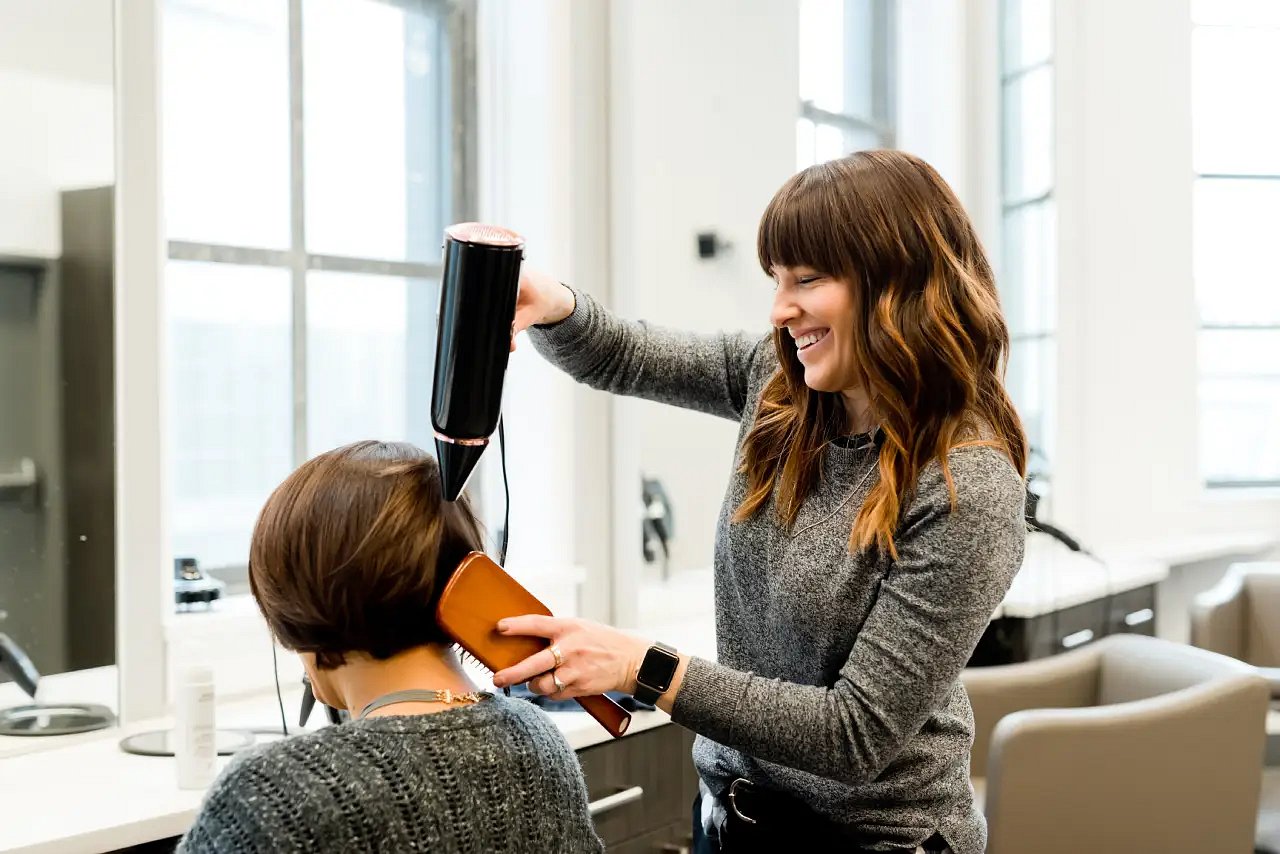
Why You Can’t Afford to Ignore Hair & Beauty Salon Insurance
Did you know that South Africa’s beauty and personal care industry is worth over R3 billion? Despite Covid-19 forcing some hair salons, spas, salons and boutiques to temporarily close between 2019 and 2021, the industry has rebounded in 2022 as South Africans flock to pamper themselves ahead of the festive season.
If your beauty business survived Covid-19, you might be tempted to forget the uncertainty of the past few years and its negative impact. While it’s always a good idea to focus on the future, taking steps to protect your business can give you peace of mind should the unthinkable happen. Here's how hair and beauty salon insurance from First for Women can help accomplish this.
Do I need hair and beauty insurance?
For decades, businesses have existed to help people beautify themselves, with customers turning to professionals to improve their hair, makeup, nails and more. As time has passed, more businesses have popped up under the beauty industry umbrella to accommodate new trends. Salons offering tanning, teeth whitening and eyelash extensions now co-exist with those offering traditional services like blow waves and facials. Your business might be one of them.
If you’re wondering “do hairdressers need insurance?“ or any other beauty business for that matter, the answer is yes. All businesses in this category can benefit from insurance – whether the business in questions offer nail extensions out of someone’s house or involves a professional salon setup in a shopping mall.
As the beauty industry is so diverse, a generic insurance solution is unlikely to offer you value. You’ll want a custom package that affordably caters to your business’s needs and nobody else’s.
What type of hair or beauty salon insurance do you need?
When it comes to business insurance, it helps to understand that no single best hair salon insurance or beautician insurance exists. For adequate coverage, you’ll likely benefit from a curated portfolio of insurance policies. Here are some elements that most hair and beauty insurance coverage can include:
1. Commercial property insurance
Any space that you dedicate to your business operations is considered commercial property. This means that even if you operate out of an outbuilding on the same property as your home, you’ll qualify for coverage. Commercial property insurance usually covers the structure of the building and any permanent installations made to it. It can also include the products, equipment and tools you use to conduct business.
Tak a look at this example: Janelle purchases a small house in a residential area and converts it into a salon filled with shelves where she sells hair products. A massive storm takes place, and a tree crashes through the front of the salon. Commercial insurance will cover the cost of repairing the broken front window and brick work as well as replace any lost merchandise.
2. Liability insurance
This type of insurance can financially protect you against any claims made against yourself, your business or your employees whether the incident in question was preventable or intentional. It will cover the cost of legal representation and can cover you against legal action employees or the public take against you based on your business or its products and services. The larger your business is, the greater liability it will usually face.
For example, imagine that Nandi, a professional nail technician, founds her own nail salon and outfits it with equipment. One day, a client complains that they developed an unpleasant infection after having their nails done at Nandi’s salon. Upon investigation, Nandi realises that some of her nail equipment was defective, causing it to harbour harmful bacteria. Although the fault doesn’t lie with Nandi, her liability insurance allows her to pay for her client’s medical bills and prevents her reputation from being compromised.
3. Trade or equipment insurance
Your business likely relies on a range of complex equipment to help it safely, quickly and effectively meet clients’ beauty needs. Should this equipment get damaged or require replacement, it could put your business out of commission for months while you raise the necessary funds. Trade or equipment insurance can safeguard against this.
Vanya, for example, has owned a popular tanning salon for over a decade and her clients trust her to offer them a safe and comfortable tanning experience. She’s invested in high-end tanning beds that can customise their exact UV lamp outputs to individual client’s needs. Constant loadshedding leads to one of the tanning beds to short-circuit. Because Vanya has insured the beds for their actual value, she can replace the broken tanning bed with the exact same make and model without having to dip into any savings.
4. Business interruption insurance
When something goes wrong in your business, it’s easy to forget that recovering from it can cost you more than the price of the asset that needs replacement or repair. For every day your business can’t operate normally, you can expect a partial or total dip in your profitability. Even if you have the equipment or property insurance, it will not help you meet your financial obligations, which will keep on coming without regard for your ability to operate. Business interruption insurance will help you pay the bills until you can resume normal functioning.
It means that a business owner like Vanya can continue paying her monthly rent and staff salaries while she waits for the tanning bed to be replaced, even while she can only take on half the bookings she usually does. This will lessen the financial burden placed on the business, giving her leeway to recover from the unfortunate incident.
Get a hair salon or beauty insurance quote from First for Women
Now that you know about the benefits of insuring your beauty business, all that is left for you to do is to contact one of First for Women’s knowledgeable advisors to start building your very own portfolio. If you are ready to get a quote, you can contact us today.
Sources:
[1] BBC: Behind the scenes in South Africa’s beauty industry
● Behind the scenes in South Africa's beauty industry
Disclaimer: The information in this article is provided for informational purposes only and should not be construed as financial, legal, or medical advice. First for Women is a licensed non-life Insurer and FSP. T’s & C’s online.

We Have Great
Insurance Products
At 1st for Women we know that each
woman is an individual who has
different needs.
More Content
Most popular

Insurance
How to Submit an Insurance Claim with First for Women?

Insurance
Your Car Insurance Claim Can Be Rejected if You Do These 10 Things
Latest posts
Related Posts


